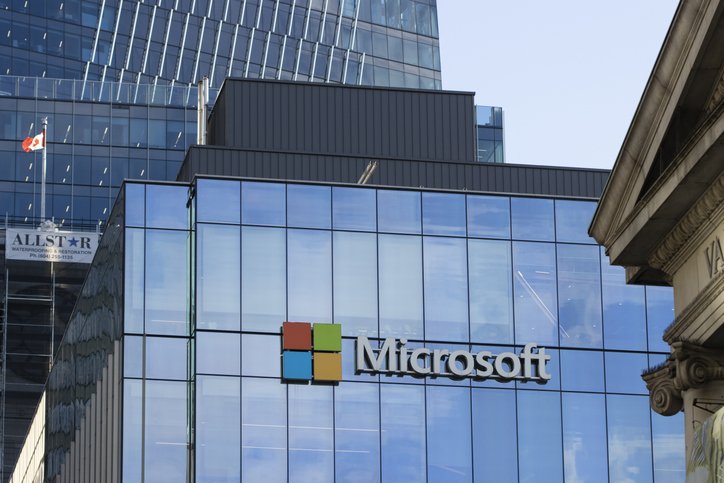In a strategic shift reflecting the dynamic landscape of artificial intelligence (AI) infrastructure, Microsoft Corporation has reportedly canceled significant data center leases in the United States. This decision comes amid growing concerns about potential oversupply in AI computing resources, especially following the emergence of DeepSeek, a Chinese startup that has introduced cost-effective AI models challenging established norms. The move has prompted discussions about Microsoft’s AI investment strategies and the broader implications for the tech industry.
Details of the Lease Cancellations
According to a report by TD Cowen, Microsoft has terminated leases amounting to several hundred megawatts of data center capacity with at least two private operators in the U.S. These cancellations suggest a reassessment of infrastructure needs in light of evolving AI demands. Additionally, the report indicates that Microsoft has paused the conversion of statements of qualifications—preliminary agreements that typically lead to formal leases—mirroring strategies employed by other tech giants to manage capital expenditures.
Factors Influencing Microsoft’s Decision
Several key factors appear to have influenced Microsoft’s recent actions:
- Emergence of DeepSeek: The introduction of DeepSeek, a Chinese AI startup, has disrupted the AI landscape by developing models comparable to those of Western counterparts but at a fraction of the cost. This development has raised questions about the necessity and return on investment of extensive AI infrastructure spending by U.S. tech firms.
- Potential Oversupply Concerns: The rapid expansion of AI infrastructure, coupled with advancements in AI efficiency, has led to concerns about a possible oversupply of data center capacity. Microsoft’s lease cancellations may reflect a strategic response to align supply with anticipated demand more accurately.
- Shifts in Partnerships: Reports suggest that OpenAI, a key partner of Microsoft, is exploring collaborations with other entities, including Oracle Corporation. Such shifts could influence Microsoft’s infrastructure requirements and investment strategies.
Microsoft’s Official Position
Despite these developments, Microsoft maintains that its overall investment strategy remains robust. A company spokesperson stated, “While we may strategically pace or adjust our infrastructure in some areas, we will continue to grow strongly in all regions.” The spokesperson reaffirmed that Microsoft’s plans to invest over $80 billion in AI and cloud infrastructure for the current fiscal year are on track, emphasizing a commitment to meeting customer demand.
Market Reactions and Implications
The news of Microsoft’s lease cancellations has elicited varied responses from the market:
- Stock Performance: Microsoft’s shares experienced a modest decline of approximately 1% following the reports. This movement reflects investor caution amid uncertainties surrounding AI infrastructure investments.
- Impact on Related Sectors: Companies associated with data center operations and infrastructure, such as Siemens Energy and Schneider Electric, saw their shares fall by 7% and 4%, respectively. U.S. utility providers Constellation Energy and Vistra also experienced declines, indicating broader market concerns about the sustainability of AI-driven infrastructure expansion.
Broader Industry Context
Microsoft’s decision aligns with a cautious trend among tech giants regarding capital expenditures on AI infrastructure:
- Meta Platforms: Similar to Microsoft’s approach, Meta Platforms has previously scaled back on data center investments, opting to reassess its infrastructure needs in response to evolving technological and market conditions.
- Investor Sentiment: The substantial investments by U.S. tech firms into AI infrastructure have come under scrutiny, especially as emerging players like DeepSeek demonstrate the potential for achieving comparable AI capabilities with more efficient resource utilization.
Microsoft’s cancellation of substantial data center leases underscores the company’s adaptive strategy in navigating the rapidly evolving AI landscape. Balancing ambitious investment plans with market realities and emerging competitive pressures, Microsoft aims to align its infrastructure development with actual demand and technological advancements. This approach reflects a broader industry trend of strategic reassessment, ensuring that growth initiatives are both sustainable and responsive to the dynamic nature of AI innovation.
Follow Swadesi for more updates!



